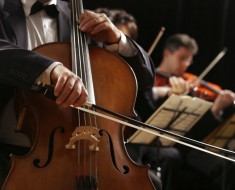Traditionally the gypsies of Spain originate from the migration of lower caste people from India into Europe as early as the eleventh century, but there is more accurate evidence of them coming to Barcelona from North Africa in the early part of the fifteenth century. The Roma were often badly treated as in other European countries where they settled (Romania gets its name from them), although in some parts of Spain they were welcomed and given protection by many local authorities.
That didn’t last for very long. For 300 years the gypsies were subject to laws designed to eliminate them as an identifiable group, but today, after the harsh restrictions of the Franco years, they are more accepted by most Spaniards, although still treated with suspicion or disapproval by some.
Despite or perhaps because of their strong sub-culture the Gitano, as they are known, are thought to have influenced the development of flamenco (see my posting September 15th , 2005) and even zarazuela (see my postings of September 11th.
and 8th. 2005) and there is an interesting connection between them and refugee Moslems after the expulsion of the Moors from Spain at the end of the fifteenth century. Rather than being exported, killed or forcefully converted to Christianity, some of the Morriscos decided to stay and mix with the Anadalusian gypsies The songs of the gitano remain part of Spain’s musical heritage.
The Mexican tenor Rolando Villazon has recently recorded on the Virgin label some of these traditional songs, the disc entitle simply ‘Gitano’. He is accompanied by the Orquesta Comunidad de Madrid which is conducted by a familiar figure on these postings, Placido Domingo, both of whose parents were zarazuela singers. This was the musical culture in which Villazon’s career apparently also began in his native Mexico.
The disc has been very well reviewed.
Villazon is a comparatively new figure on the musical scene and is making a great name for himself. His debut at Covent Garden as Alfredo in La Traviata, was applauded by one critic who referred to his ‘rich, full-bodied sound, keen musicality, and innate sense of graceful phrasing.’ In the Sunday Times Hugh Canning said ‘Villazon is the real thing, a tenor with star potential and striking individuality.’ A review of the new CD in The Guardian says that the tenor and Domingo ‘have a whale of a time in 15 classics of the genre’. Sounds inviting!
B.R.



